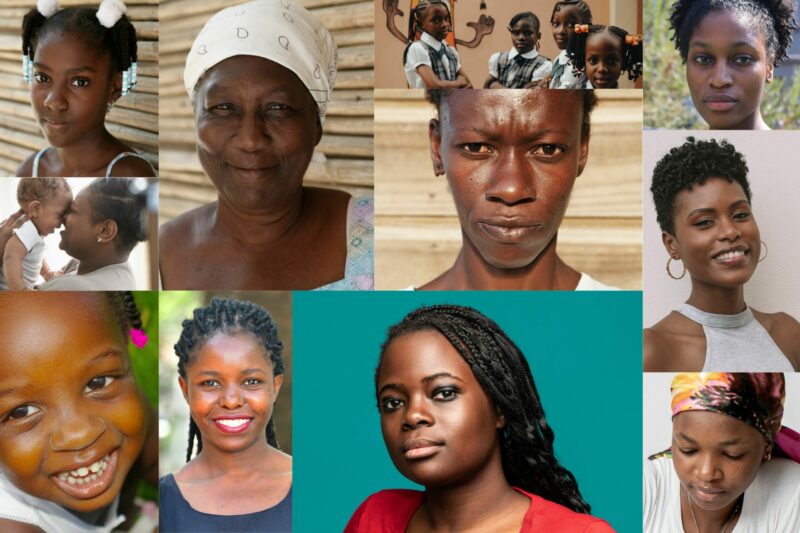You can now listen to Antigua News articles!

No Excuse: Ending Violence Against Women
By Kieron Murdoch | Opinion Contributor
Today is the International Day for the Elimination of Violence Against Women and it also marks the beginning of an important period of awareness raising on violence against women and girls (VAWG) called 16 Days of Activism. It is an opportunity to remind ourselves of the damage that such violence causes in the lives of women and girls, and in society, and recommit ourselves to ending it.
The United Nations notes that “violence against women and girls remains one of the most prevalent and pervasive human rights violations in the world” and that globally, “almost one in three women have been subjected to physical and/or sexual intimate partner violence, non-partner sexual violence, or both, at least once in their life.”
This horrific violence against women and girls creates emotional trauma and physical injuries, risks contraction of sexually transmitted infections and interruptions to sexual health and reproductive abilities, and sometimes results in unwanted pregnancies and even death.
Here in Antigua and Barbuda, each citizen and resident must commit to do more to hold those who commit such violence accountable. Accountability is a major challenge when it comes to responding to and preventing future acts of violence in various situations. Far too often perpetrators are able to persist due to our collective willingness to accept violence against women and girls as a norm.
The UN Women Caribbean Office states, “The most common form of violence experienced by women globally is physical violence inflicted by an intimate partner. On average, at least one in three women is beaten, coerced into sex or otherwise abused by an intimate partner in the course of her lifetime.”
The official UN theme to make this day and the 16 Days of Activism is “No Excuse”. We ought to take that to heart. Often, excuses are made as to why individually, collectively, and institutionally, we are not doing a greater job of combating violence of this nature and holding those responsible accountable.
It is important that we provide adequate resources to our official and nonprofit organisations that respond to violence of this kind. The work that is done by special victims investigators, our social workers, counsellors, gender affairs officials and activists in the field needs constant support and constant resources.
Abuse of girls, and child abuse generally is so normalised it is frightening. So many people can share stories of being molested, raped, passed off to others for sex by those who should have been their guardians, coerced, misled, and then had the abuse denied, or covered up. Too many have stories of their first sexual encounter happening via incest – a father, a step father, a step sibling, an older cousin.
And needless to say, while today’s focus happens to be on women and girls, we do not for a moment forget that boys are also being made victims of such violence with horrifying frequency, sometimes by men and sometimes by women.
In addition to supporting the agencies, activists, and organisations that are leading the response to violence against women and girls, and recognising that we each have a responsibility to end the silence and impunity that often accompanies such violence, we must also consider more impactful avenues of changing the culture that allows violence against women and girls, particularly sexual violence to be normalised.
In this regard, we ought to have comprehensive age-appropriate sexual education in our school system from primary school right through to university taught as an important life subject. In the absence of it, we abandon our young people to random outcomes.
If we wish ideas like bodily autonomy and consent to really take hold, these must be concepts that we expose young people to consistently, and not just as a quick course, one term, over the expense of their growing years. They too should have age appropriate access to knowledge about what VAWG looks like, and how to respond to it.
We have to build a knowledge, a sensitivity, and a respect in young people that reduces the likelihood that they will perpetuate those harmful norms or stereotypes that we call today as deeply problematic.
Finally, we must treat violence against women and girls with the seriousness and the intolerance that it warrants. If half our population live in a state where they are at heightened risk of physical violence and sexual violence because of our gendered norms, it is an inhibitor to peace in our families, peace in our communities, peace in the lives of the people we love, and to the progress of our nation. Violence against women and girls is a human rights violation and a public health crisis.
About the writer:
Kieron Murdoch is an opinion contributor at antigua.news. He worked as a journalist and later as a radio presenter in Antigua and Barbuda for eight years, covering politics and governance especially. If you have an opinion on the issues raised in this editorial and you would like to submit a response by email to be considered for publication, please email staff@antigua.news.
























Government need make it a crime for a man to commit violence against a woman, may it physically or sexual there should be places where females can go to get help with being judge,most times the woman stays in those abused relationships because there are no resources to turn for help.
Violence against any person is already a crime. WE need to change mindsets to not have this kind of violence be normalised
Government need make it a crime for a man to commit violence against a woman, may it physically or sexual there should be places where females can go to get help without being judge,most times the woman stays in those abused relationships because there are no resources to turn for help.
I miss faithful national comments. I have been coming here to read them, and he or she seems to have vanished. But no woman should be violated or beaten or abused.
There seems to be a linkage between violence against children and violence against women. Austrian peace researcher Franz Jedlicka explains this “intersectionality” in his recent podcast episode (and on LinkedIn). And he also mentions the White Ribbon Campaign – a men’s movement to end violence against women.